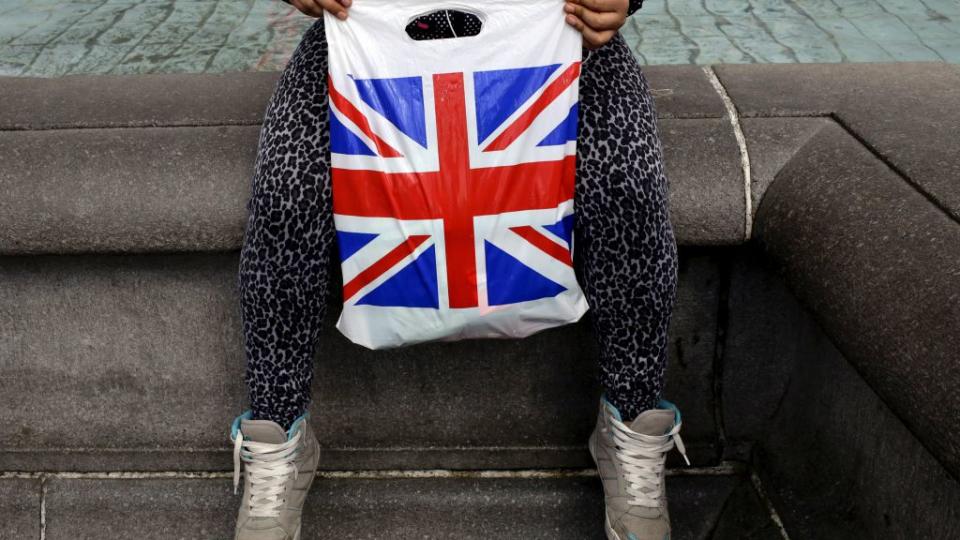To “compete with China and Bangladesh,” UK garment factories paid workers as little as £3 per hour

Consumers may believe that garment factories exploiting workers is a problem restricted to low-wage Asian nations. As long as they buy items made in the UK or US they’re safe. That’s wrong.
Investigations continue to find factories in the UK and US that grossly underpay workers. In 2014, the Ethical Trading Initiative, an alliance of companies, organizations, and trade unions, found “endemic” problems (pdf) in the garment industry in Leicester, UK, where it estimated 75% to 90% of the sector was paying an average wage of about £3 (about $3.75) per hour, less than half the legal minimum at the time. In the US, a recent Labor Department investigation of factories in Los Angeles producing for major brands discovered labor violations in 85% of them. Workers earned $7 an hour on average—$3 less than the state minimum—though some earned as little as $4 an hour.
Adding to these concerns, an undercover investigation by the UK’s Channel 4 that aired this week claims UK garment factories producing for well-known fashion labels are paying workers between £3 and £3.50 an hour. The legal minimum is currently £7.20 for workers 25 and over.
The brands implicated in the Channel 4 documentary, part of its Dispatches series, include River Island, Boohoo, New Look, and Missguided, all of which make trendy clothes for the mass market. An undercover reporter took jobs doing various tasks at factories in these brands’ supply chains.
At Fashion Square Ltd., for instance, which put labels on River Island’s clothes, the reporter was paid about £3 an hour, according to the documentary. In reply to the reporter challenging a wage below the legal minimum, his boss says: “You won’t get that here…We don’t get paid much for our clothes, and we need to compete with China and Bangladesh. They can get it cheap there. How will they get it made cheaper here? If we pay everyone £10 or £6 then we will make a loss.”
Following the allegations, River Island said it had no knowledge this factory was producing for it, and that River Island had ceased working with it in February 2016 after it failed two audits. “Suppliers were informed not to use this factory for any further River Island orders,” the company said. “We are investigating this issue and will take appropriate action. Sub-contracting without River Island’s approval is a serious breach of our Terms and Conditions.”
The reporter also worked at a factory producing items for New Look, where he says he was paid £3.50 an hour, and at one that did work for Boohoo and Missguided, where the documentary says he earned £3.25 an hour.
New Look also said it didn’t know work was being carried out in the factory shown, which was evidently subcontracted by one of its suppliers, TS Knitwear. “Following an audit we conducted last summer, we made it clear to the supplier, TS Knitwear, that the factory in question did not meet our required ethical standards and therefore should not be used to manufacture New Look garments,” the company said. “Since then, it has become clear that TS Knitwear has subcontracted a small number of orders to this factory without our knowledge or consent and in breach of our agreement.” New Look says it has now terminated its relationship with TS Knitwear.
And Boohoo also claims it didn’t know the factory shown was part of its supply chain. “The garment mentioned in the Dispatches programme was supplied by an approved audited supplier which had indicated in writing to boohoo on multiple occasions that all of the work on boohoo products was carried out in its own factory” the company said in a statement (pdf). “Boohoo was therefore totally unaware that United Creations had been used for any part of the manufacturing process.”
Missguided told the Guardian it takes the allegations very seriously and demands “the highest standards of safety, working conditions and pay from all of our suppliers and subcontractors.” The company says it has started an internal investigation and “will also ensure these matters are addressed urgently by the supplier in the best interests of the workers.” We have also reached out to Missguided for comment and will update this post with any response.
Though it may strain viewers’ credulity to hear that these brands didn’t know where their own products were being made, the problem has unfortunately become widespread in the garment industry, at least in countries such as Bangladesh. It’s the result of subcontracting: A brand will contract a factory to do a certain set of work, and that factory, perhaps finding itself too busy to complete the order, will contract another factory to do it.
The practice makes it difficult for brands to monitor working conditions at their suppliers, but also gives them plausible deniability when labor violations turn up. It’s what allowed many brands to claim they didn’t know their clothes were being made at the factories destroyed in the deadly 2013 Rana Plaza collapse in Bangladesh.
Simultaneously, the pressure to produce clothes as cheaply as possible is squeezing wages in garment factories well beyond Asia. The Ethical Trading Initiative, which claims New Look and River Island as members, said in a statement that the low pay and other problems it documented in the UK garment industry in 2014 had improved since then, but clearly not enough. New Look, meanwhile, said since 2011 it has had to reduce the number of UK suppliers it works with by 80% to “address potential weaknesses” in its supply chain.

Sign up for the Quartz Daily Brief, our free daily newsletter with the world’s most important and interesting news.
More stories from Quartz:

 Yahoo Finance
Yahoo Finance 